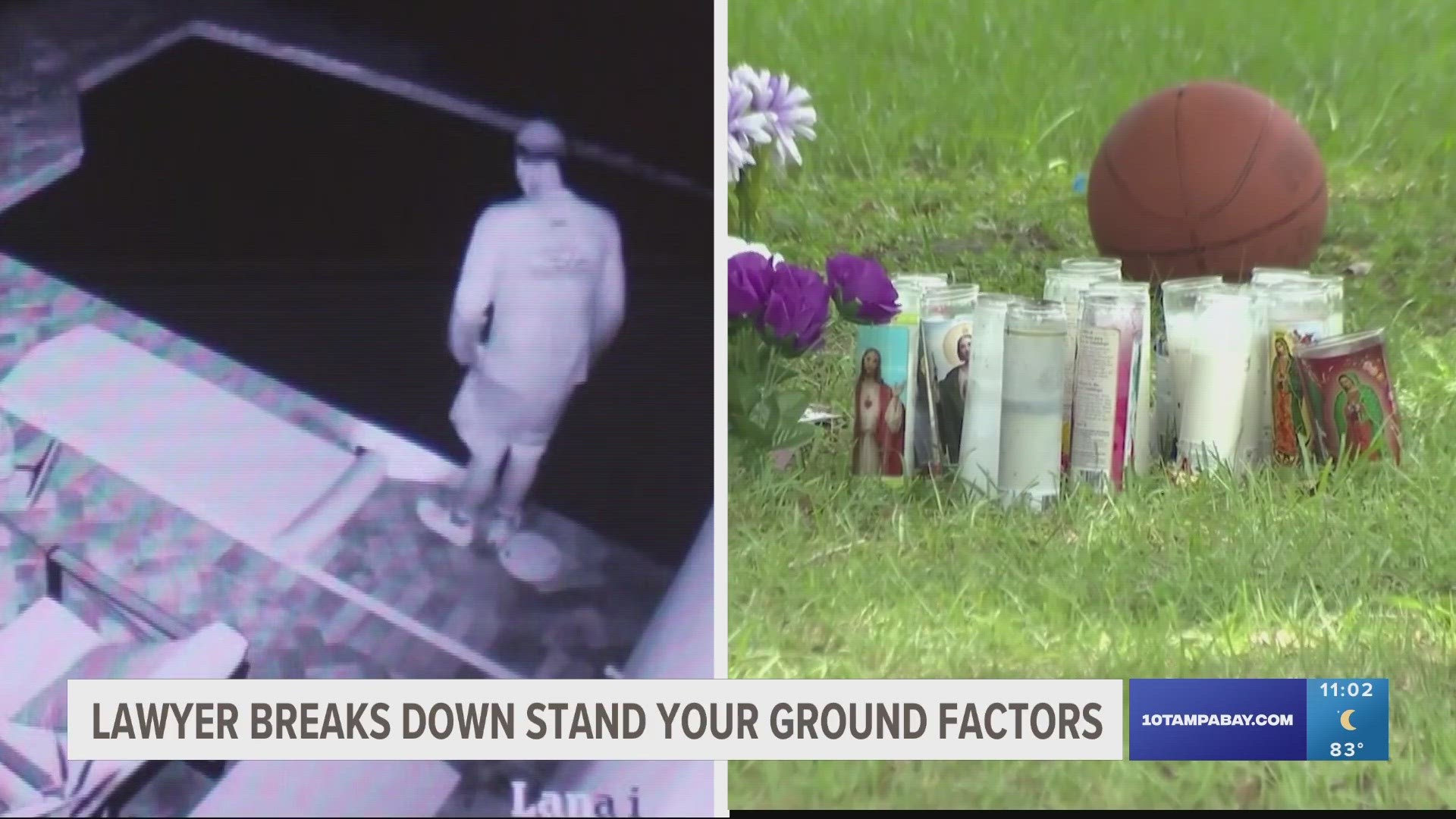SAINT PETERSBURG, Fla. — They are two cases with very different outcomes, but in both, investigators say the "stand your ground" law was put to the test.
The question is, was each shooting justified? 10 Tampa Bay's Angelina Salcedo spoke to Rohom Khonsari from Khonsari Law Group who explains the law and shares the key differences in each case.
"The 'stand your ground' law in the state of Florida is that you can use deadly force in cases where you're in fear of great bodily harm or death," Khonsari said.
But Khonsari said it depends on the facts in each case. In Dunedin, while no charges have been filed in the case where a homeowner shot a man who came to service their pool, the Pinellas County Sheriff's Office said the homeowner was acting within the law when he fired his weapon.
"The time of day is really important in that case. The fact that it happened around 9 o'clock at night, it's dark," Khonsari said. "No one thinks that someone's going to be on their screened-in lanai for a legal purpose or a lawful purpose at that time of night.
"I don't think either of the residents were thinking that their pool guy might be there at that time, so the castle doctrine with the reasonableness of the fear and the presumption of the fear of being there kicks in at that time of night. That's where the 'stand your ground' law applies."
Meanwhile, in Ocala, Susan Lorincz is charged with manslaughter in the death of Ajike "AJ" Owens after the state attorney found there's insufficient evidence to file a murder charge against her.
"If the woman, the deceased, was at the door was making threats or yelling, or saying that she was going to come into the house and hurt her," Khonsari explained. "Or if she was grabbing at the door handle kicking the door or anything like that, to where she was attempting to gain entry into the house that would lend more credibility to 'stand your ground.'"
According to Khonsari, the key differences that set each incident apart are the location and time of day.
"In the Ocala case, the lady being outside the home versus say, inside a screened-in lanai or inside the home, I think those are the main differences. The other difference, on the flip side, in the case of Ocala, is there's this heated discussion between the two people at the door whereas the case in Dunedin the guy's just on the screened-in lanai," Khonsari said. "There's really no interaction at all."
But still, the attorney says it isn't easier to prove "stand your ground" in one case over the other. 10 Tampa Bay did reach out to the man who went to service the pool in Dunedin, but so far, we have not heard back.

